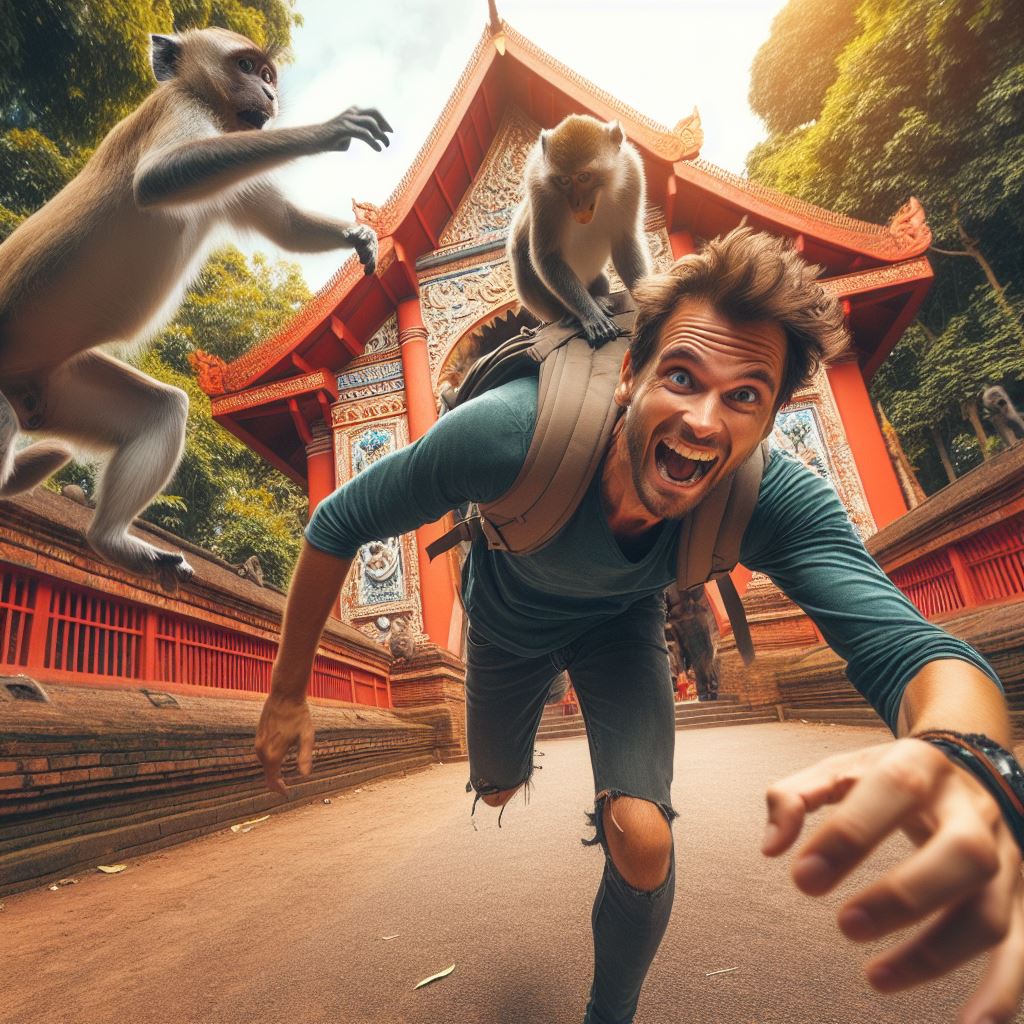LOPBURI – In the Thai village of Lopburi, normally a popular tourist destination for its beautiful Buddhist statues and architecture, a growing local macaque population has left officials with a problem costing them thousands of dollars every day in lost tourism revenue. As their numbers swell to close to 3000 individuals, the once-friendly monkey population has turned aggressive, following years of tourist handouts. Visitors flocking to admire the ancient Buddhist temples that dot the landscape are met with roving bands of monkey thieves, causing injuries ranging from scratches and bumps and bruises to a dislocated knee and an imploded skull. As the incidents escalate, concerns mount over the potential impact on Thailand’s vital tourism industry.
For years, the monkeys of Lopburi have been a familiar sight, charming tourists with their playful antics and endearing presence. However, recent reports indicate a disturbing shift in behavior, with the primates becoming increasingly bold in their pursuit of food and handouts from visitors. What began as minor incidents of theft and mischief has escalated into full-blown attacks, as the monkeys aggressively target tourists’ belongings in search of sustenance.
“It’s like they’ve declared war on us,” laments one tourist who fell victim to a monkey ambush near a temple in the heart of Bangkok’s historic district. “They came out of nowhere, swarming around us and trying to grab our bags. It was terrifying. I still can’t find my daughter.”
Faced with mounting pressure to address the growing monkey menace, the Thai government has devised a plan to tackle the problem head-on. Recognizing the potential impact on tourism revenue, officials have spared no expense in implementing measures to restore peace and tranquility to the once serene temples.
Enter Nature’s Reserve, a renowned company specializing in wildlife management solutions. The Thai government has secured a bulk purchase of Monkey-Be-Gone, an aerosol spray developed by the company for use on safari tours to protect patrons from animal encounters. Armed with this potent deterrent, authorities are poised to take decisive action against the unruly simian population.
In a bold move aimed at neutralizing the threat posed by the aggressive monkeys, the Thai government has unveiled a revolutionary plan centered around a giant stone Buddha statue. Crafted with meticulous care and precision, the statue serves as a mobile platform from which officials can administer the potent Monkey-Be-Gone spray.

During the first successful application of the thick green monkey gas, authorities watched as the aggressive primates succumbed to a deep slumber, their frenzied antics replaced by peaceful repose. Civil servants swiftly sprang into action, shoveling the sleeping monkeys into bins before transporting them to a remote location for disposal.
The government’s efforts don’t end there. In a symbolic gesture aimed at appeasing the Buddhist monkey god Baphet, authorities have devised a final resting place for the displaced primates. After being trucked to the edge of a local volcano, Kil Da Fu Khing Mun Khees, the slumbering monkeys are ceremoniously cast into its fiery depths, offering tribute to the deity and ensuring their eternal rest.
As Thailand breathes a collective sigh of relief, officials remain cautiously optimistic about the future of tourism in the city. With the monkey menace effectively neutralized, authorities are confident that visitors will once again flock to the ancient temples and vibrant streets of one of Thailand’s most popular tourist locales.
Jessica Cortez-Hill




